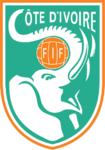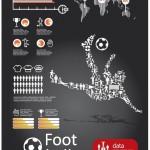This is a guest post by Thomas Stone
Political risk effects markets. Whether we like it or not, functioning economies live in symbiosis with functioning governments. In West Africa, however, there is a third factor: football.
You’ve got international trade and businesses on the one hand, political players on the other hand…and then on the third hand you’ve got the football club.
In 2006, rebel forces in the north and government forces in the south of Ivory Coast called a ceasefire when the national Football club—nicknamed Les Éléphants (‘The Elephants’)—qualified for the World Cup. The staccato barking of Kalashnikovs which had previously punctuated the days and nights outside of Abidijan stopped. Gbagbo caved to the pleas of the Ivorian football federation and went back to the table to restart peace-talks with the rebels. For all intents and purposes—at least in the mind of Gbagbo—the civil war ended; because of a football team.
The Elephants didn’t make it past the group stage in Germany in 2007, and they again failed to push through the group stage last year in South Africa. The Elephants wiped the floor with North Korea only to be defeated by Brazil. A few months later, the conflict began again.
Even as Gbagbo departs from his illicit Presidency and Outtara takes on the mantle, Ivory Coast’s position as the world’s top exporter of cocoa is under threat—due in no small part to the violence of recent months which interrupted production.
Just a few miles north of the border Ivory Coast-Liberia border, in Monrovia, George Weah is preparing to run for President in Liberia against Ellen Johnson-Sirleaf. George Weah—FIFA World Player of the Year in 1995, and perhaps the greatest footballer ever to come onto the world-stage out of Africa 1995—was defeated by Sirleaf in 1995, but he has continued to be a major player and a humanitarian presence in the region; sponsoring education through football programs in one of the most shell-shocked countries in the world. He’s used his influence in a positive way throughout the recent conflict. Whatever the outcome of the election in Liberia this year, it looks like George Weah has traded in his cleats for wingtips for good.
At a time of unusually high volatility in across Africa and the Middle-East, we would all do well to consider the connection between functioning economies, sane government and ‘soccer’(as the Americans call it). Regional sports teams may just be a metaphor for the performance-capacity, competitiveness, and raw talent of the community that they represent. But then after all: currencies are sort of a complex system of metaphors as well—aren’t they? And pride in the local ‘football team’ (whether it be the Elephants in Abidijan, or the Colts in Indianapolis) forms a foundation and a model for teamwork in the community that loves them, supports them, and writes their paychecks.
Thomas Stone is a contributing author at Pom Poms and Cigars.




